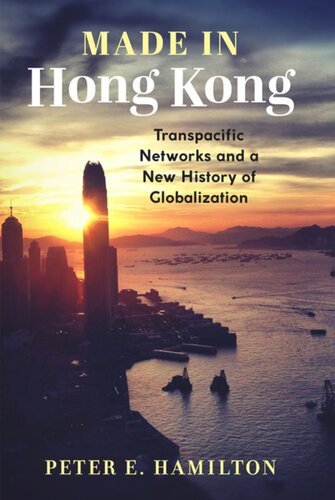

Most ebook files are in PDF format, so you can easily read them using various software such as Foxit Reader or directly on the Google Chrome browser.
Some ebook files are released by publishers in other formats such as .awz, .mobi, .epub, .fb2, etc. You may need to install specific software to read these formats on mobile/PC, such as Calibre.
Please read the tutorial at this link: https://ebookbell.com/faq
We offer FREE conversion to the popular formats you request; however, this may take some time. Therefore, right after payment, please email us, and we will try to provide the service as quickly as possible.
For some exceptional file formats or broken links (if any), please refrain from opening any disputes. Instead, email us first, and we will try to assist within a maximum of 6 hours.
EbookBell Team

4.4
62 reviewsBetween 1949 and 1997, Hong Kong transformed from a struggling British colonial outpost into a global financial capital. Made in Hong Kong delivers a new narrative of this metamorphosis, revealing Hong Kong both as a critical engine in the expansion and remaking of postwar global capitalism and as the linchpin of Sino-U.S. trade since the 1970s.
Peter E. Hamilton explores the role of an overlooked transnational Chinese elite who fled to Hong Kong amid war and revolution. Despite losing material possessions, these industrialists, bankers, academics, and other professionals retained crucial connections to the United States. They used these relationships to enmesh themselves and Hong Kong with the U.S. through commercial ties and higher education. By the 1960s, Hong Kong had become a manufacturing powerhouse supplying American consumers, and by the 1970s it was the world’s largest sender of foreign students to American colleges and universities. Hong Kong’s reorientation toward U.S. international leadership enabled its transplanted Chinese elites to benefit from expanding American influence in Asia and positioned them to act as shepherds to China’s reengagement with global capitalism. After China’s reforms accelerated under Deng Xiaoping, Hong Kong became a crucial node for China’s export-driven development, connecting Chinese labor with the U.S. market.
Analyzing untapped archival sources from around the world, this book demonstrates why we cannot understand postwar globalization, China’s economic rise, or today’s Sino-U.S. trade relationship without centering Hong Kong.